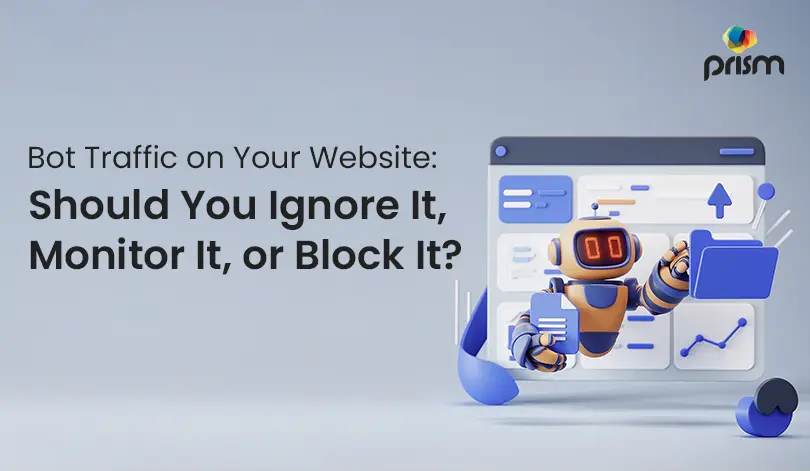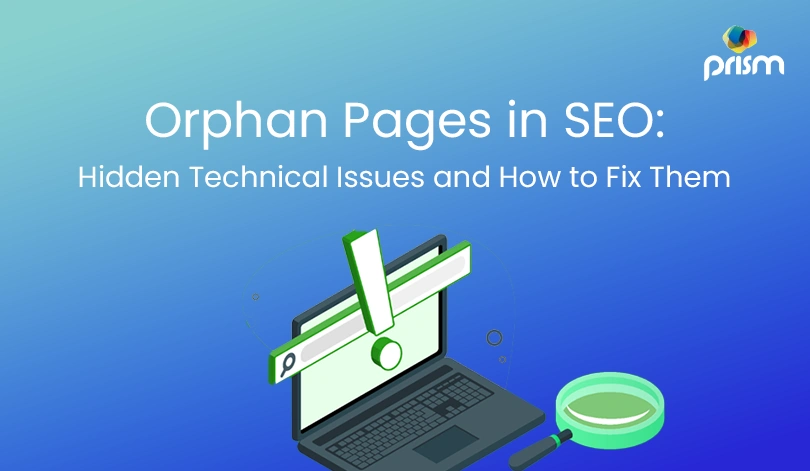

E-commerce SEO Audit Checklist 2023

What is an E-commerce SEO Audit?
Before we start talking about the details, let's first understand what an e-commerce SEO audit is all about. Think of it as a health check for your website. An e-commerce SEO audit is a precise evaluation of your website's organic visibility, designed to spot the weak areas that demand attention or enhancement. This in-depth analysis goes beyond surface-level inspection, diving deep into the intricacies of your site's performance across critical ranking factors.
The outcome? A tailored report delivering a comprehensive score alongside a targeted checklist of prioritized SEO enhancements. This process functions as a precision tool, offering insights and directives to improve your website's search engine rankings.
Why Regular SEO Audits are Important?
Even if you have the perfect SEO strategy, stuff wears out over time. Technical glitches, on-page hiccups and link-related challenges tend to crop up over time, potentially wreaking havoc on the carefully constructed strategy you've put in place.
Now, if you've got your eyes set on Google's first page (who doesn't?), you need a solid SEO strategy. And this is precisely what e-commerce SEO audits can help you do. This proactive approach allows you to catch indexing errors and mend broken links before they can cast a shadow on your search engine rankings.
So, what do you look out for? During these audits, keep a keen eye out for indexing errors, outdated keywords, sluggish loading times and duplicate content – these culprits can seriously dent your SEO game.
Most ecommerce sites have intricate architectures and URL parameters because they often operate on a global scale. This complexity makes it easy to miss emerging problems. Regular e-commerce SEO audits serve as your vigilant guardian, helping you stay ahead of changes and nip potential issues in the bud before they harm your organic traffic and bottom line.
What Aspects Are Not Covered in an E-commerce SEO Audit?
What an e-commerce SEO audit covers is pretty extensive, but it does have its limitations. Firstly, it tends to zero in on your e-commerce website specifically. That means broader tasks like checking out what your competitors are up to organically or doing a deep dive into general keyword research usually fall outside the scope. The primary aim here is to catch any glaring SEO issues or bottlenecks on your site.
But, and it's an important but, an e-commerce SEO audit doesn't focus on other critical on-site territories. For example, it won't peek into digital accessibility or assess if your site complies with the Web Content Accessibility Guidelines (WCAG). For those insights, you'd want to run separate accessibility audits.
How Frequently Should You conduct an E-commerce SEO Audit?
A quarterly audit is generally recommended to proactively identify and address potential issues. Although the ideal frequency can vary based on the scale and dynamism of the e-commerce operation. If you have a comparatively larger store, characterized by a substantial product range and frequent content updates, you might find monthly audits more beneficial.
Conversely, smaller stores with less frequent changes may find bi-annual audits sufficient. It's important to tailor the audit schedule to the specific needs of your business, considering factors such as growth trajectory and the evolving search engine algorithms. Consistent e-commerce SEO audits are not only a preemptive measure but also as a strategic investment in the enduring success of the online enterprise.

How Can You Perform an Effective E-commerce SEO Audit?
Now that we've got the lay of the land and understand the crucial details, it's time to shine the spotlight on the main event – the major steps to conduct an e-commerce SEO audit.
Technical Audit
Alright, let's break down the technical side of boosting your online store's visibility. We call it the technical audit, and it's a big deal for e-commerce success.
Robots.txt & Sitemap
Think of robots.txt as your website's map for Google bots. It guides them through your site. To check it, use tools like 'seositecheckup.com' or just visit 'www.abc.com/robots.txt'. The sitemap, at 'www.abc.com/sitemap.xml', is like the index, helping Google find and understand your pages.
Broken Links
Nobody likes stumbling upon broken links. They mess up the user experience and increase bounce rates. Use Google Search Console or 'Check My Links' to find and fix them. A smooth journey for your users is a win for your website.
Meta Tags
Now, onto meta tags. These are your website's introduction to search engines and users. Go through every page, checking titles and descriptions. Make them catchy – it's not just about looking good; it's about getting more clicks.
Mobile-Friendly Audit
Now, let's talk about checking the mobile-friendliness of your website. With most shoppers browsing on their phones, having a mobile-friendly website is a must. Imagine a user opening your site on their phone, effortlessly finding products – that's the golden ticket to more traffic and conversions.
Why does it Matter?
Improve Click-Through Rates (CTR): A mobile-friendly site isn't just about looking good; it's a ticket to higher CTR. Users are more likely to click and explore when your site adapts easily to their phones.
Elevate User Experience: A user-friendly mobile site translates to a positive user experience. Smooth navigation means happy customers, and happy customers stick around.
Flexibility Matters: Mobile-friendly sites aren't just for looks; they're flexible. Your website adapts to different screens, ensuring a seamless experience across various devices.
Cost-Effective Solution: Investing in a mobile-friendly site is cost-effective. It's a smart move that attracts and retains customers without breaking the bank.
How to Check?
You can use different online tools to put your website through a mobile-friendliness check. Every tap and swipe should be smooth for users on the move.
Speed and Usability Audit
When it comes to website audits, speed is the silent hero. Speed and usability as the dynamic duo driving user satisfaction, lower bounce rates, and ultimately, higher conversion rates.
Why Does Speed Matter?
Reduce Bounce Rates: If your website takes forever to load, users will bail. High loading times spike the bounce rate and send potential customers packing.
Boost Traffic: A speedy site is a magnet for users. They stick around, explore more, and that translates to increased traffic.
Elevate Conversion Rates: Quick-loading sites aren't just good for users; they're conversion boosters. The faster your site, the more likely users are to convert.
How to Check and Improve?
GTMetrix Magic: you can use GTMetrix to discover the culprits slowing down your website – be it caching, minification, compression or image optimization.
Page Speed Priority: Page speed is the MVP. Slow-loading pages not only risk an organic ranking penalty but are a conversion killer for e-commerce. Test representative URLs for various templates – homepage, product page, category page, and more.
Image Optimization: Ecommerce means lots of product images. Optimize them by caching and lazy loading – a smart strategy to keep your pages loading swiftly.
Product Organization Audit
Making sure your customers can easily find their way around your online store is a must. A well-organized and user-friendly layout enhances the overall shopping experience, turning casual visitors into satisfied customers.
User-Friendly Bliss
User experience is everything. An e-commerce SEO audit focused on product organization is the secret weapon to making sure every click feels natural, every product is easily discoverable, and your customers enjoy a shopping journey that is not just transactional but genuinely delightful. If users find products with ease, you're on the right track. Analyze user behavior, optimize categories, and tap into analytics for insights.
Error Check and Redirect Rescue
Watch out for 404 errors or dead pages. Redirect swiftly to the right pages for a clean user journey – no bumps, just smooth sailing.
Pagination Precision
Pagination is a website design technique that involves breaking down lengthy content, such as a list of products or articles, into separate and more manageable pages. Instead of displaying all items on a single, overwhelming page, pagination divides the content into smaller, numbered sections. A flawless pagination setup ensures users can navigate through these pages using page numbers, next/previous buttons, or other similar indicators.
Canonicals
E-commerce complexity leads to duplicates. Canonical tags are your heroes. In your e-commerce SEO audit, make sure originals have self-referencing canonical tags. Alternates gracefully point to the original – no confusion.
Backlink Audit
Having a bunch of reputable websites pointing to yours is like a stamp of approval for search engines. It boosts your site's authority and helps it climb the ranking ladder.
Review Your Backlinks
During your e-commerce SEO audit, carefully observe your backlinks. Make sure they're leading to the right places. If some are pointing to old or broken links, don't worry. Just set up a 301 redirect to a relevant, updated page on your site.
Power Redistribution Trick
Now, here's a cool move. You can take the strength from some of your powerful backlinks and share them. How? Simple. Add links from these well-connected pages to other important pages on your site that you want to boost. It's like a teamwork strategy for your website.
Content Audit
Content is king in the e-commerce world. Informative, engaging content isn't just a plus – it's the key to unlocking more traffic and conversions. This part of your e-commerce SEO audit is all about making sure your website's content isn't just information – it's an experience.
For e-commerce, the spotlight is on product descriptions and headlines. Before hitting that 'Buy' button, users dive into the details, especially the product features. But there is a problem – e-commerce sites often grapple with duplicate content, recycling manufacturer descriptions and creating identical product pages. The solution? A strategic use of canonicals, "noindex" tags, and a dash of uniqueness like FAQs, product reviews, and shopping guides.
Content Quality Check
Quality matters. Your audit should be on the lookout for "thin" content – stuff that doesn't add real value, pages that are hard to read, or content that's riddled with errors. Plus, ensure your content is a reflection of your brand – consistent tone, appropriate terminology – you want visitors to feel the brand vibe across every page.
Keyword Harmony
Keywords can be tricky in the e-commerce arena. Products in the same category might end up vying for the same searches. Differentiate your pages by using unique, specific descriptors. This way, your products aren't stepping on each other's toes in the search results.
Structured Data
Structured data is like the magic wand for e-commerce SEO. It tells search engines exactly what's on your page. For e-commerce, schema markup is your go-to. Use it for Products – giving Google a feast of details for rich snippets, and Breadcrumb – guiding search engines through the hierarchy of your site.
How Prism Digital Can Transform Your E-commerce SEO Journey?
For e-commerce sites, SEO isn't just a checkbox – it's a lifeline. Unlike other businesses that might view SEO as a pit stop in the user journey, e-commerce relies on organic traffic as its heartbeat, the very source of sustainable revenue. Your e-commerce website deserves to be a search engine superstar, and that's where Prism Digital steps in to be your guide.
We specialize in optimizing your website for search engines, offering regular e-commerce SEO audits to keep you ahead in the SEO game. Our SEO marketing agency in Dubai understands the unique challenges faced by e-commerce businesses and is equipped with the expertise to conduct thorough audits, addressing issues like backlinks, mobile-friendliness, page speed, product organization and content quality.
We not only identify areas for improvement but also implement strategic solutions to boost your online visibility, enhance user experience and drive conversions. Whether you need assistance in refining your content strategy, optimizing your website's technical aspects, or devising a tailored SEO plan, Prism Digital is your trusted partner on the journey to ecommerce success!

About The Author: Lovetto Nazareth
Lovetto Nazareth is a digital marketing consultant and agency owner of Prism Digital. He has been in the advertising and digital marketing business for the last 2 decades and has managed thousands of campaigns and generated millions of dollars of new leads. He is an avid adventure sports enthusiast and a singer-songwriter. Follow him on social media on @Lovetto Nazareth
Post Your Comment!
Recent Blogs

Does AI Content Work for Search Engines? What Google Actually Rewards in 2026

Bot Traffic on Your Website: Should You Ignore It, Monitor It, or Block It?

GEO, AEO, LLMO vs SEO: New Strategy or Just Old Wine in a New AI Bottle?

Orphan Pages in SEO: Hidden Technical Issues and How to Fix Them

Support
Phone: +971 55 850 0095
Email: sales@prism-me.com
Location: Prism Digital Marketing Management LLC Latifa Tower, Office No. 604 - West Wing World Trade Center 1, Sheikh Zayed Road Dubai, UAE
Subscribe
Join our newsletter to stay up to date on features and releases.
By subscribing you agree to our Privacy Policy and provide consent to receive updates from our company.
